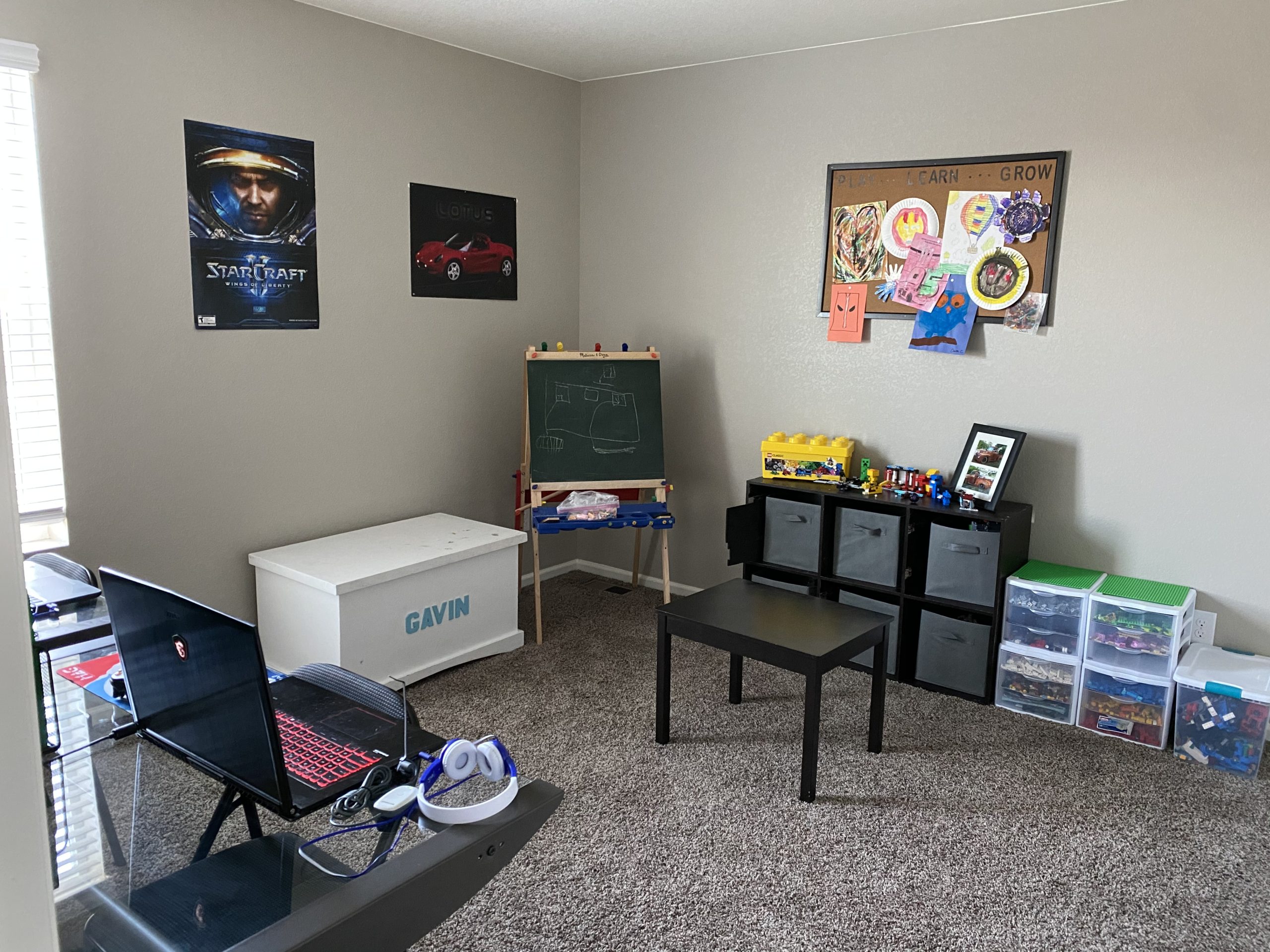
[ad_1]
Annie Lindgren
North Forty News
Poudre School District (PSD) students went ‘Back to School’ on August 24, 2020, though they will be learning remotely rather than attending in person. School administration, teachers, and parents have all had difficult decisions to make over the past month in preparation. Everyone is experiencing a school year like never before.
Vicky Jordan retired PSD teacher, who is helping several students in her family with the start of the school year shares: “I don’t think anyone wants to be responsible for causing someone to have long-term side-effects from contracting Covid-19, or worse, deaths, especially when known measures can prevent that. Not gathering in large groups, like at school, is one of those measures. We need to think long-term and do the best we can in the short-term. Learning matters, however we can help that happen.”
Amid pandemic related restrictions, parents and guardians everywhere are handling things based on what is best for their child(ren), their situation, and resources available to help. Not all conditions are conducive to ideal remote learning experiences. Many parents are stressed, and many students are missing out on the benefits of the traditional school setting.
Poudre School District had the summer to get better systems in place for handling the variety of educational forums that could accompany the upcoming school year. Detailed information on what to expect, given to parents and students, can also be found on the PSD webpage. Resources are available for laptops, internet access, and IT support in multiple languages. Every teacher will have learning pages that will be consistent and accessible through the same place as remote learning materials.
Madeline Noblett, Executive Director of Communications at PSD, shares: “Between spring and summer 2020, teachers and staff have participated in more than 20,000 collective hours of remote education training. During training in early August, 65 classes focused upon building connections with students and were designed to help educators increase their proficiency and comfort with remote learning.” Training and support for teachers and staff continue.
Here are some tips for helping students be successful in remote learning:
- Have a space in the home set aside for learning. This creates a mental boundary for focusing on school work and signifies to others in the house that the student is working.
- Maintain a consistent daily schedule and routine. From morning wake-up and getting dressed for the day, lunchtime, and evening routine and bedtime. Schedule blocks of time for work on specific subjects and projects, and other activities conducive to learning (like exercise, outdoor time, hobbies or play, and social time).
- Use a board to display the schedule and assignments for the week. Check off tasks that are complete, and showcase tokens of the student’s achievements.
- Get creative in utilizing supports by asking friends, family, and employers for help or advice.
- Support students as they gain routine in remote learning by reading all correspondence from the school and holding them accountable to their schedule.

“It is so important right now that our students and their families hear they are not alone,” said Melanie Voegeli-Morris, PSD Mental Health and Prevention Coordinator. “They do not have to navigate the challenges of our new COVID-19 world by themselves. I am so proud to say that our team of compassionate mental health professionals is ready to support students, whether they feel lonely, isolated, anxious, scared, depressed, or all of those things at once. Parents and guardians can help their children access additional supports by contacting their child’s school counselor. PSD Special Service Professionals, including Mental Health Specialists, Social Workers, and Psychologists work with school counselors to meet students’ social, emotional, and mental health needs.”
For those in need of mental health support outside of what school counselors can help with, here are other great resources in Larimer County:
Emotional Support: Connections COVID-19 Emotional Support line for Larimer County, available seven days a week, at 970-221-5551. They have behavioral health specialists available by phone or videoconferencing. COVID support services are available at no charge. They have a variety of services available to help with other mental health or substance use concerns.
For Suicidal Crisis: SummitStone Crisis Line at 970-494-4200 (local), Colorado Crisis Services at1-844-493-8255 (or text TALK to 38255), or call 911.
For Suicidal Assessment: Crisis Assessment Center, located in the Emergency Department of PVH/UCH, Lemay campus, 1024 S. Lemay, Fort Collins, CO, 970-495-8090.
For Education and Support around Suicide: AllianceForSuicidePrevention.org offers information about suicide, including facts, warning signs, community resources, and grief support groups, 970-482-2209.
For Mental Health Support:
- SummitStone offers a variety of mental health services, just call and let them know what you need: 970-221-5551.
- healthinfosource.com lists available resources and providers in the community, including insurance information.
For Concerns about Child Safety or Resources: Child, Youth & Family Services (CYF) works with children who are at risk of being abused or who have been abused or neglected. CYF also works with children and youth who are beyond their parents’ control, have delinquent behavior, and/or have violated the law. 970-498-6990
To report child abuse and neglect: In Larimer County call 970-498-6990 or 1-844-CO4KIDS (1-844-264-5437)
In the topic of education, just as in many other controversial issues filling up our news feeds, we have to remember that everyone is doing the best they can. No one prepared for a pandemic, and passing judgment isn’t helpful to progress. Instead, we should support our youth, who are also having to adapt to many changes.
“Some days, doing ‘the best we can’ may still fall short of what we would like to be able to do, but life isn’t perfect on any front, and doing what we can with what we have is the most we should expect of ourselves or anyone else,” Fred Rogers of Mr. Rogers Neighborhood.
Northern Colorado LiveMarket
[ad_2]
Source link